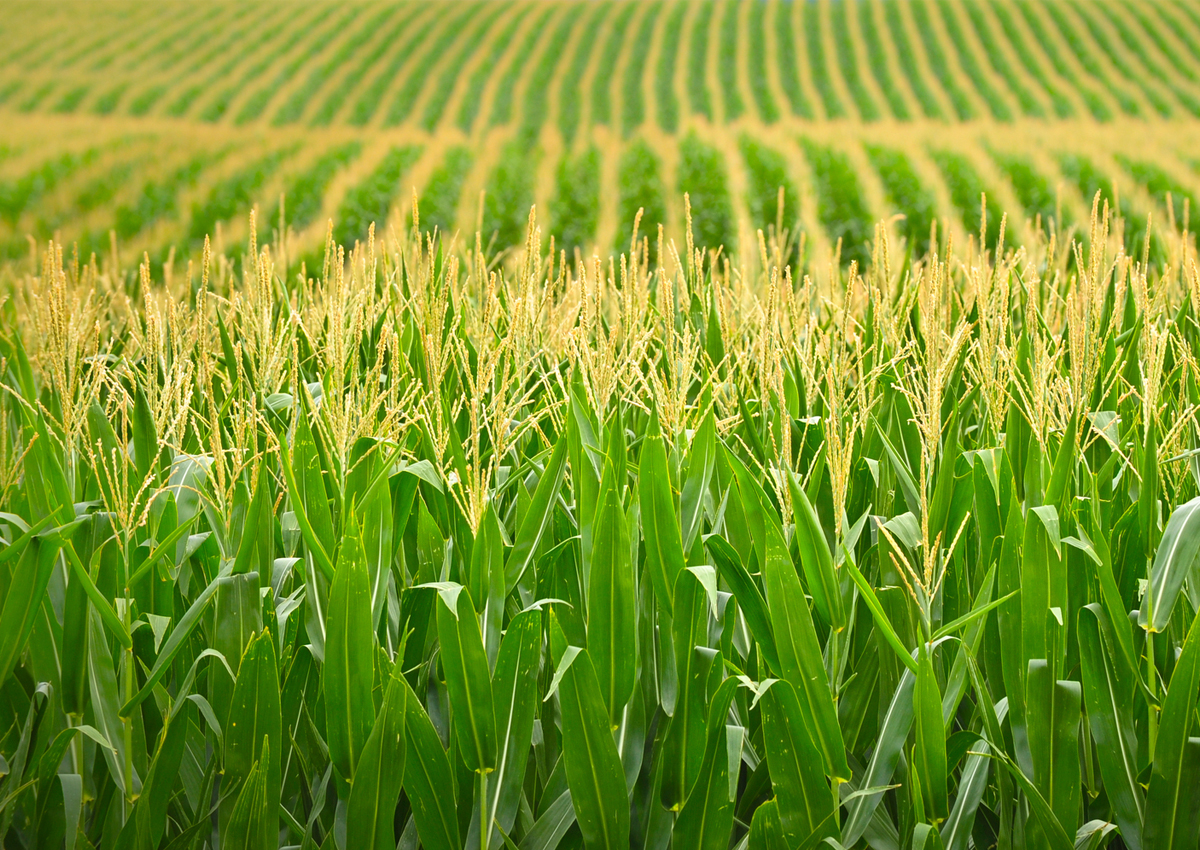
New Gene Discovery to Help Develop Crops with Better Alkaline Tolerance
April 5, 2023| |
Scientists in China have identified a gene involved in alkaline tolerance in crops that may help improve yields in sodic environments through genetic engineering. The study, led by Prof. Xie Qi's team from the Institute of Genetics and Developmental Biology of the Chinese Academy of Sciences, in collaboration with seven other institutions, has been published in Science.
There are more than one billion hectares of saline and alkaline soil in the world, with about 60% classified as highly sodic. This prompts the development of saline- and alkaline-resistant crops as an urgent global challenge. However, alkaline tolerance in plants has not been well studied. The researchers first performed a genome-wide association study in a diverse sorghum panel and identified an important locus, Alkaline tolerance 1 (AT1), that encodes an atypical G protein γ subunit and controls alkaline tolerance. The AT1 gene has orthologs in other plants; in rice, it was named GS3.
Further experiments showed that the at1/gs3 allele produces a C-terminus truncation protein that contributes to the negative alkaline tolerance effect, while knocking out AT1/GS3 conservatively increased tolerance to alkaline stress in monocot crops, including sorghum, millet, rice, and maize. To assess the application of the AT1/GS3 gene in crops, field trials were conducted in saline and alkaline soils. The researchers found that nonfunctional mutants in a number of monocots, including sorghum, millet, rice, and maize, can significantly improve the field performance of crops in terms of biomass or yield production than their not modified controls when grown in sodic soils.
For more details, read the article in the Chinese Academy of Sciences Newsroom.
| |
You might also like:
- Chinese Researchers Study Alkaline Tolerance in Rice Using CRISPR-Cas9
- Soybean Gene Confers Alkaline Stress Resistance in Alfalfa
- Researchers Find Soybean Genes for Alkaline Stress Resistance
Biotech Updates is a weekly newsletter of ISAAA, a not-for-profit organization. It is distributed for free to over 22,000 subscribers worldwide to inform them about the key developments in biosciences, especially in biotechnology. Your support will help us in our mission to feed the world with knowledge. You can help by donating as little as $10.
-
See more articles:
-
Plant
- New Gene Discovery to Help Develop Crops with Better Alkaline Tolerance
- Experts Explore Genetic Basis of Micronutrients in Tropical Maize
- Pres. Biden Pushes for the Power of Biology for a Better Bioeconomy
- Israeli Scientists Develop Drought-Resistant Tomatoes
- Agbiotech Knowledge Continues to Grow Among Filipino Stakeholders According to Study
-
Animal
- Fishery and Aquaculture Biotech to Enhance Philippines’ Research and Economic Capacity
-
Food
- Malaysia Set to Open First Cultivated Meat Facility in 2024
- ISAAA in 2023: Striving for Sustainability
-
Health
- Scientists Uncover New Details of SARS-CoV-2
-
Read the latest: - Biotech Updates (January 28, 2026)
- Gene Editing Supplement (January 28, 2026)
- Gene Drive Supplement (February 22, 2023)
-
Subscribe to BU: - Share
- Tweet

